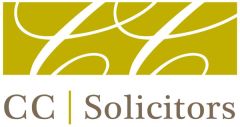Whistleblowing
The Whistleblowing Directive sets new EU-wide minimum standards for protecting whistle-blowers and requires Member States to establish comprehensive whistleblower protection frameworks.
We have set out below the current situation in Ireland, Germany and the UK (who of course are not imple- menting the Whistleblowing Directive).
Ireland
The original Irish Protected Disclosures Act 2014 was enacted on 15 July 2014. The Irish Protected Disclosures (Amendment) Act 2022 (“the Act”) was signed into law in July 2022 and represents a very substantial development in Irish law related to whistleblowing and imposes significant new obligations on employers.
The updated legislation includes a number of key enhancements to existing whistleblowing protections and measures, such as:
- Widening the scope of individuals who are afforded protection beyond employees to include volunteers, interns, job applicants, suppliers, shareholders and non-executive directors;
- Reversing the burden of proof. Where a worker alleges penalisation, the new legislation shifts the burden to the employer to prove that the employer’ actions were based on duly justified grounds and not because the worker made a protected disclosure. Where an employer is found to have penalised a worker for having raised a protected disclosure, the Workplace Relations Commission can award compensation of up to five year’s remuneration;
- Requiring that employers with between 50 and 249 employees establish internal channels and proce- dures for the making of protected disclosures on or before 17 December 2023;
- Requiring that employers with 250 plus employees have established internal channels and procedures for the making of protected disclosures by 1 January 2023;
- Interpersonal grievances: a new exclusionary provision endeavours to exclude personal grievances from the scope of the legislation being matters exclusively affecting a reporting person. However, legal advice should be sought before making a decision as, due to the fact that there is no public interest requirement, there may be individual grievances that would not come within this exclusion (e.g., complaints about an individual worker’s health and safety).
A stepped disclosure regime is envisaged which sees the first disclosure being made to one’s employer. The Act provides for the establishment of the Office of the Protected Disclosures Commissioner.
The Act creates a range of criminal offences and penalties. They cover scenarios such as hindering the making of a protected disclosure or penalising a worker for making a protected disclosure. Depending on the particular offence, there are a range of heavy potential fines of anything up to €250,000. A conviction of a body corporate can even result in potential imprisonment for an offending director, manager, secretary or other officer for up to 12 months upon summary conviction or up to 2 years upon indictment.
Employers in Ireland need to ensure they have appropriate whistleblowing procedures in place. Any existing whistleblowing procedures should be reviewed against the detailed provisions of the Act particularly the timelines for response which include the requirement to acknowledge receipt of a protected disclosure within 7 days of receipt and to appoint a designated impartial person to follow up diligently on all reports received and provide feedback to the reporting person within 3 months of acknowledgment of receipt.
Employers with 250 employees or more, who do not have a local whistleblowing procedure in place, should take immediate steps to put one in place, and employers who have between 50-249 employees should pre- pare to do likewise by December 2023. While it might not be legally required, it is recommended that employers with less than 50 employees also have a local whistleblowing procedure in place in order to ensure any whistleblowing complaints are dealt with appropriately.
